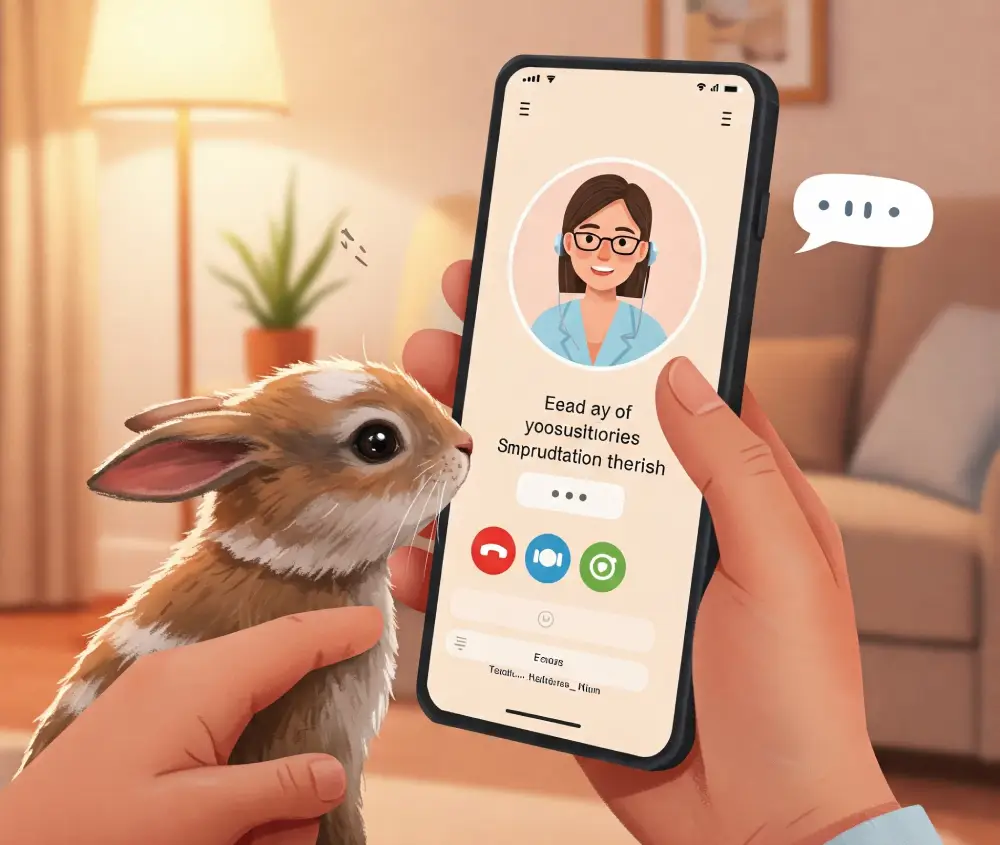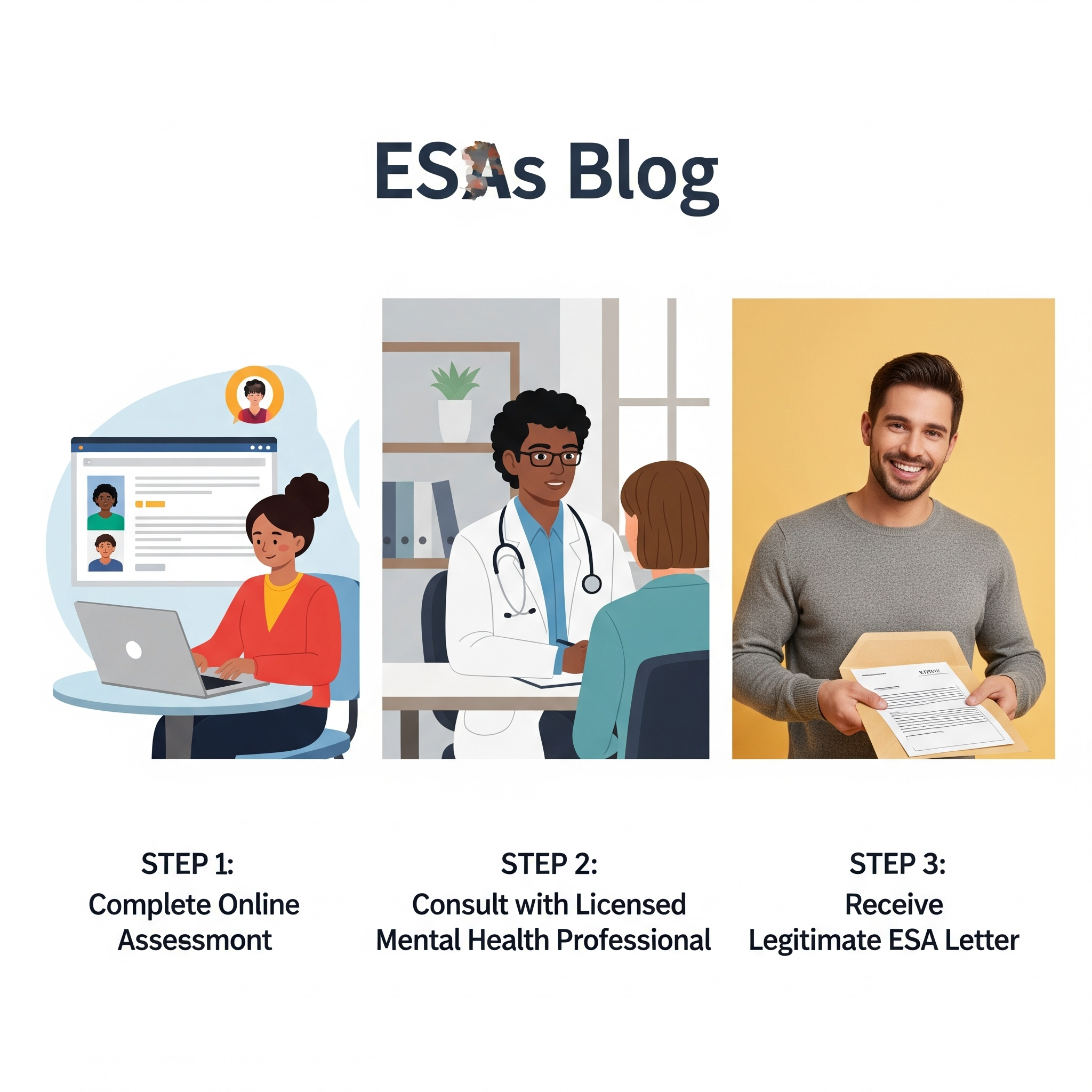For millions of people worldwide, managing a mental health condition is an ongoing journey. While therapy, medication, and lifestyle adjustments form the cornerstone of treatment, for many, the presence of an animal companion can offer profound and sometimes life-changing support. Emotional Support Animals (ESAs) and Psychiatric Service Dogs (PSDs) provide distinct yet equally valuable forms of assistance. Understanding which mental health conditions may qualify an individual for an ESA or PSD letter is the first step toward accessing these crucial accommodations. This comprehensive blog post, brought to you by CertifyESA, your trusted provider of legitimate ESA and PSD letters, will explore the top 10 mental health conditions that frequently qualify individuals for these vital forms of support.
The Crucial Distinction: ESA vs. PSD
Before diving into specific conditions, it’s essential to reiterate the fundamental difference between an ESA and a PSD, as this distinction impacts qualification criteria and legal protections:
- Emotional Support Animals (ESAs): An ESA provides therapeutic benefit and emotional comfort through its presence alone. They do not require specialized training to perform specific tasks. The primary legal protection for ESAs is under the Fair Housing Act (FHA), which allows individuals with disabilities to live with their ESAs in “no-pet” housing.
- Psychiatric Service Dogs (PSDs): A PSD is a highly trained service animal specifically trained to perform tasks that directly mitigate a symptom of their handler’s mental health disability. These tasks are not naturally occurring behaviors and are tailored to the individual’s specific needs (e.g., reminding to take medication, interrupting self-harm, providing deep pressure therapy). PSDs are protected under the Americans with Disabilities Act (ADA), granting them public access rights.
Qualification for both an ESA and a PSD relies on a diagnosis of a mental health disability that substantially limits one or more major life activities. A licensed mental health professional (LMHP) makes this determination.
Top 10 Mental Health Conditions That May Qualify for an ESA or PSD Letter:
While this list covers common conditions, it’s crucial to remember that eligibility is always determined by a licensed mental health professional based on an individual’s specific symptoms and how they impact their daily life. The presence of a condition alone does not automatically qualify someone; the functional limitation caused by the condition is the key.
1. Depression (Major Depressive Disorder):
- How it Qualifies: Depression often manifests as persistent sadness, loss of interest, low energy, and feelings of hopelessness, which can severely limit daily functioning, motivation, and social engagement.
- ESA Role: An ESA can provide consistent companionship, reduce feelings of isolation, encourage routine (e.g., feeding, walks), and offer unconditional affection, lifting spirits and promoting engagement.
- PSD Role: A PSD might be trained to provide tactile stimulation during depressive episodes, interrupt self-isolating behaviors, or provide medication reminders.
2. Anxiety Disorders (Generalized Anxiety Disorder, Panic Disorder, Social Anxiety Disorder):
- How it Qualifies: These disorders involve excessive worry, fear, panic attacks, and avoidance behaviors that can significantly limit social interactions, public outings, and overall daily functioning.
- ESA Role: An ESA can offer a calming presence, reduce feelings of panic, provide a sense of security, and be a focal point to redirect anxious thoughts.
- PSD Role: A PSD can be trained to recognize and interrupt anxiety attacks, provide deep pressure therapy (DPT) to ground a person, create a buffer in crowded spaces, or lead a handler to an exit during an overwhelming situation.
3. Post-Traumatic Stress Disorder (PTSD):
- How it Qualifies: PTSD involves persistent re-experiencing of a traumatic event, avoidance, negative alterations in mood/cognition, and hyperarousal, leading to severe limitations in daily life, sleep disturbances, and hypervigilance.
- ESA Role: An ESA offers a non-judgmental presence, promoting a sense of safety and reducing feelings of isolation often associated with PTSD.
- PSD Role: PSDs are particularly valuable for PTSD. They can be trained to wake handlers from nightmares, retrieve medication, alert to panic attacks, create personal space in public, or “cover” the handler by standing behind them to provide a sense of security.
4. Bipolar Disorder:
- How it Qualifies: Characterized by significant mood swings (manic and depressive episodes) that severely disrupt daily life, relationships, and responsibilities. The unpredictable nature of symptoms can be highly debilitating.
- ESA Role: An ESA can provide emotional consistency and a calming presence during mood fluctuations, offering unconditional support regardless of the handler’s mood state.
- PSD Role: A PSD might be trained to alert to the onset of mood shifts, provide grounding during manic or depressive episodes, or remind the handler to take medication.
5. Obsessive-Compulsive Disorder (OCD):
- How it Qualifies: OCD involves intrusive thoughts (obsessions) and repetitive behaviors (compulsions) that consume significant time and cause extreme distress, interfering with daily functioning, relationships, and work/school.
- ESA Role: An ESA can offer a distraction from obsessive thoughts, provide comfort during anxiety caused by compulsions, and encourage engagement with the outside world.
- PSD Role: A PSD can be trained to interrupt compulsive behaviors, provide grounding techniques during intrusive thoughts, or retrieve items to break a compulsive cycle.
6. Eating Disorders (e.g., Anorexia Nervosa, Bulimia Nervosa):
- How it Qualifies: These disorders involve severe disturbances in eating behaviors, thoughts, and emotions, leading to significant physical and mental health limitations, social withdrawal, and body image distortions.
- ESA Role: An ESA can provide non-judgmental comfort, reduce feelings of isolation, and encourage a focus on something positive outside of the eating disorder.
- PSD Role: A PSD might be trained to interrupt disordered eating behaviors, provide calming presence during anxiety related to food or body image, or prompt consistent routines.
7. Schizophrenia Spectrum and Other Psychotic Disorders:
- How it Qualifies: These conditions involve disturbances in thought, perception, emotion, and behavior, which can lead to significant functional impairment, social isolation, and difficulty with reality testing.
- ESA Role: An ESA can provide companionship and a sense of reality, reducing loneliness and fostering emotional connection.
- PSD Role: PSDs can be trained to provide reality checks, interrupt hallucinations or delusions, alert to changes in the environment, or remind the handler to take medication, significantly enhancing safety and stability.
8. Borderline Personality Disorder (BPD):
- How it Qualifies: BPD is characterized by unstable moods, behavior, and relationships, impulsivity, and intense emotional dysregulation, causing significant distress and impacting major life areas.
- ESA Role: An ESA can offer consistent, unconditional affection and a stable emotional anchor, helping to regulate intense emotions and reduce feelings of abandonment.
- PSD Role: A PSD can be trained to interrupt self-harming behaviors, provide grounding during emotional dysregulation, or offer a consistent presence during times of crisis.
9. Autism Spectrum Disorder (ASD):
- How it Qualifies: While primarily a neurodevelopmental disorder, ASD often co-occurs with significant mental health challenges like anxiety, depression, and sensory sensitivities that can substantially limit social interaction, communication, and coping skills.
- ESA Role: An ESA can provide a calming presence, reduce sensory overload, and offer a consistent source of comfort, making transitions easier.
- PSD Role: A PSD for an individual with ASD can be trained to provide deep pressure stimulation during meltdowns, track an individual if they elope, guide through overwhelming environments, or help facilitate social interaction by acting as a social bridge.
10. Chronic Stress/Burnout leading to significant functional impairment:
- How it Qualifies: While “stress” itself isn’t a diagnosable mental health condition, chronic, debilitating stress or burnout that leads to severe anxiety, depression, insomnia, physical symptoms, and functional impairment (e.g., inability to work, engage in self-care) may qualify. The focus is on the resulting mental health symptoms and their impact.
- ESA Role: An ESA can offer a vital source of comfort, reduce stress hormones, encourage breaks, and provide a grounding presence to combat overwhelming feelings.
- PSD Role: A PSD might be trained to interrupt compulsive work behaviors, provide calming during severe stress responses, or prompt self-care activities.
The Role of a Licensed Mental Health Professional (LMHP)
It cannot be stressed enough: only a licensed mental health professional can determine if an individual’s mental health condition qualifies them for an ESA or PSD. They conduct a thorough assessment, considering the diagnostic criteria from the DSM-5 (Diagnostic and Statistical Manual of Mental Disorders, 5th Edition) and, more importantly, how the individual’s symptoms functionally impair their ability to live, work, or engage in major life activities.
CertifyESA connects individuals with qualified LMHPs who are experienced in conducting these assessments. Our ethical approach ensures that every letter issued is legitimate, compliant, and based on a genuine clinical need. We do not guarantee a letter; we guarantee a professional assessment by an LMHP.
Conclusion: Accessing the Support You Deserve
If you are living with a mental health condition that significantly impacts your daily life, an Emotional Support Animal or a Psychiatric Service Dog could be a transformative part of your support system. Understanding the conditions that commonly qualify, and more importantly, the functional limitations these conditions impose, is the first step toward exploring these options. By consulting with a licensed mental health professional through a reputable service like CertifyESA, you can get the professional assessment needed to determine if an ESA or PSD letter is appropriate for your unique journey toward enhanced well-being and independence.
Reference:
American Psychiatric Association. (2013). Diagnostic and statistical manual of mental disorders (5th ed.).





